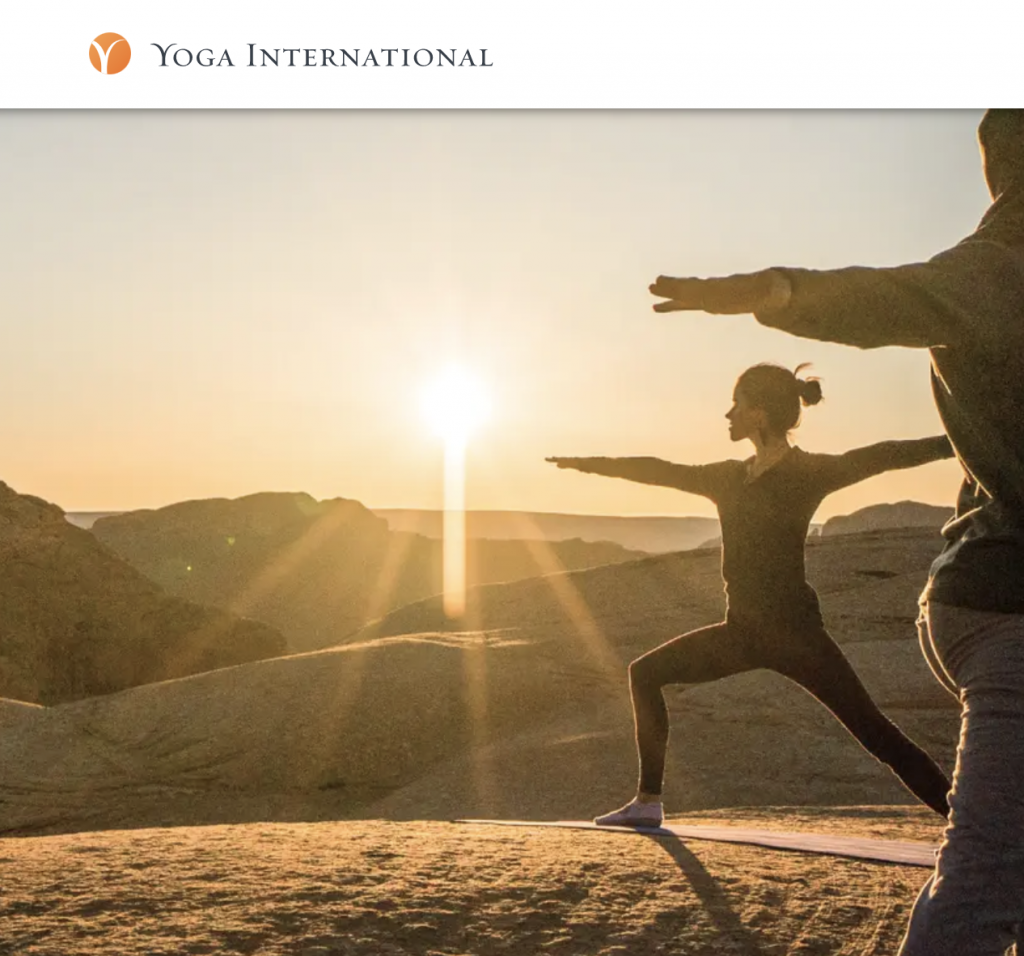
How to Respond to Sexual Abuse Within a Yoga or Spiritual Community
by Karen Rain & Jubilee Q. Cook
Content warning: This article contains descriptions of sexual assault.
Sadly #MeToo stories seem to be as common in yoga and spiritual communities as they are everywhere else. This presents a particular challenge, as people often turn to these communities for healing and safety. Thus, when abuse has occurred within a yoga community, it is highly probable that many members will not recognize it.
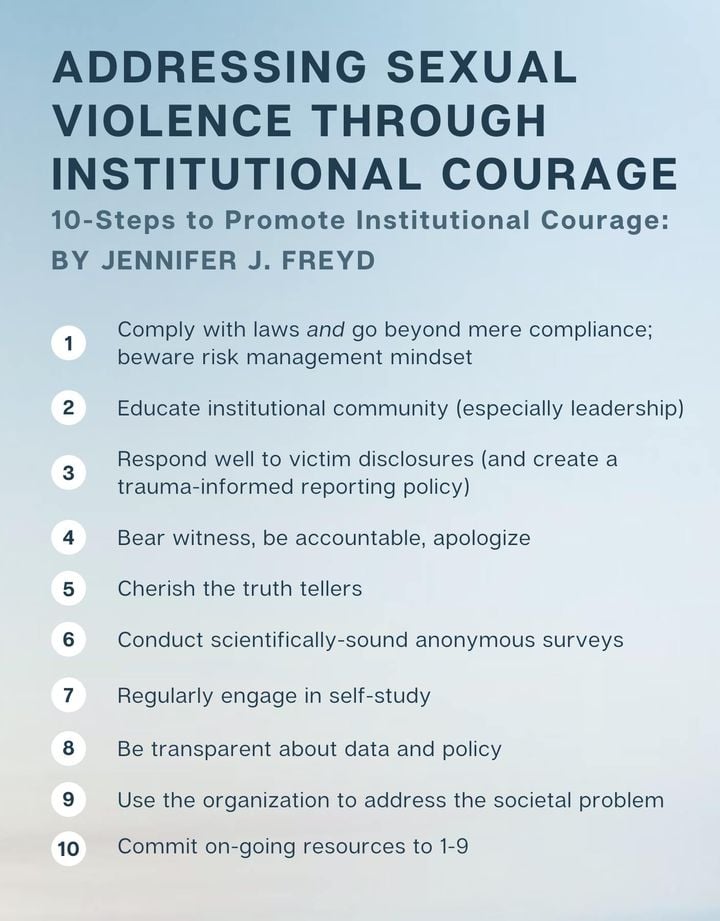
Center for Institutional Courage
https://www.institutionalcourage.org/
Institutions are the building blocks of a civil society. They are crucial to our well-being. We depend on our government, police, and hospitals to protect our lives. We love institutions that give our lives meaning, such as our schools and places of worship. Sometimes institutions really help us.
Sadly, institutions often make our lives worse, not better. They don’t protect us from harm. They are indifferent when we suffer. They focus first on profits and self-protection. The most vulnerable people are the hardest hit. We are in a terrible bind: we depend on institutions that betray us.
Institutional Courage is the Solution. It is an institution’s commitment to seek the truth and engage in moral action, despite unpleasantness, risk, and short-term cost. It is a pledge to protect and care for those who depend on the institution. It is a compass oriented to the common good of individuals, institutions, and the world. It is a force that transforms institutions into more accountable, equitable, effective places for everyone.
Satyananda Ashrams and re-branding of Satyananda Australia
Dr. Josna Pankhania, in conversation with Uma Dinsmore Tuli from The Yoni Shakti movement on abuse in Yoga, and specifically Satyananda Yoga. Both their work is shining so bright in the yoga world. Please share if you feel moved.
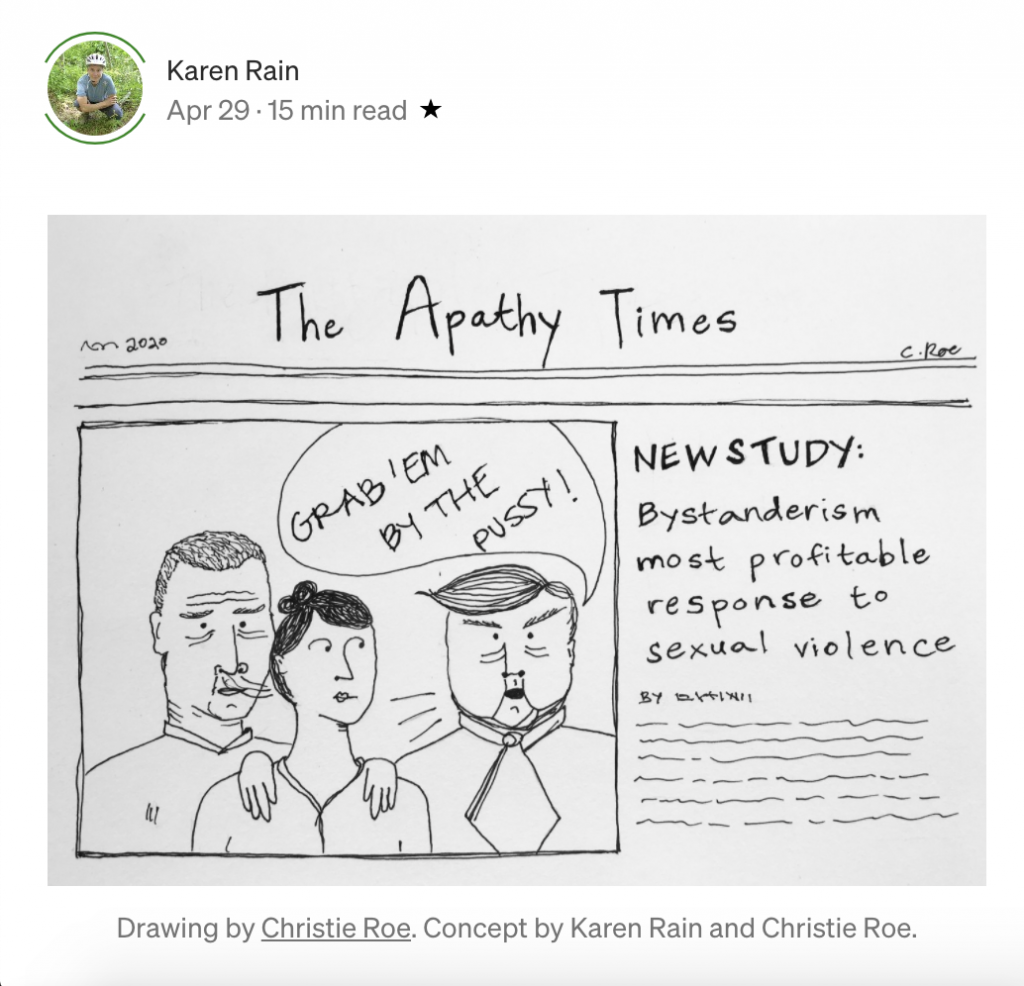
Understanding Sexual Violence in Context:
Tips for reading, writing, and talking about sexual violence
“The enablers and beneficiaries explained away Pattabhi Jois’s abuse, and then relied on the social status garnered through devotion to him to isolate anyone who questioned Pattabhi Jois’s legitimacy. Isolation — whether physical, emotional, social, or economic — is a key mechanism in abuse. It may be blatant, like threatening to harm the victim or whistleblower if they tell anyone, or it may be subtle, like using gaslighting to make the victim or witness doubt their own perception.”
https://medium.com/an-injustice/understanding-sexual-violence-in-context-2b8dc5453ded
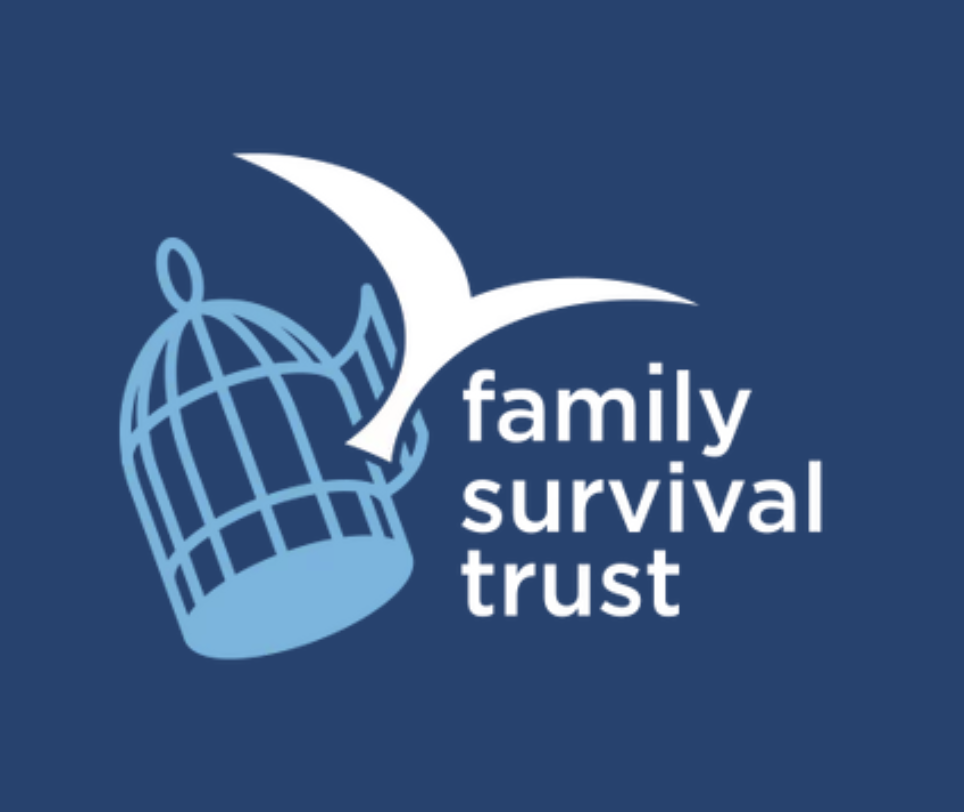
Family Survival Trust
The Family Survival Trust is a registered charity (No 1121388) whose mission is to prevent, and to provide information on coercive control, cultic behaviour and psychological manipulation. We support those affected by groups that use these techniques. We educate regarding the risks these groups pose to individuals and society and seek appropriate controls on these groups’ activities.
https://www.thefamilysurvivaltrust.org/our-role
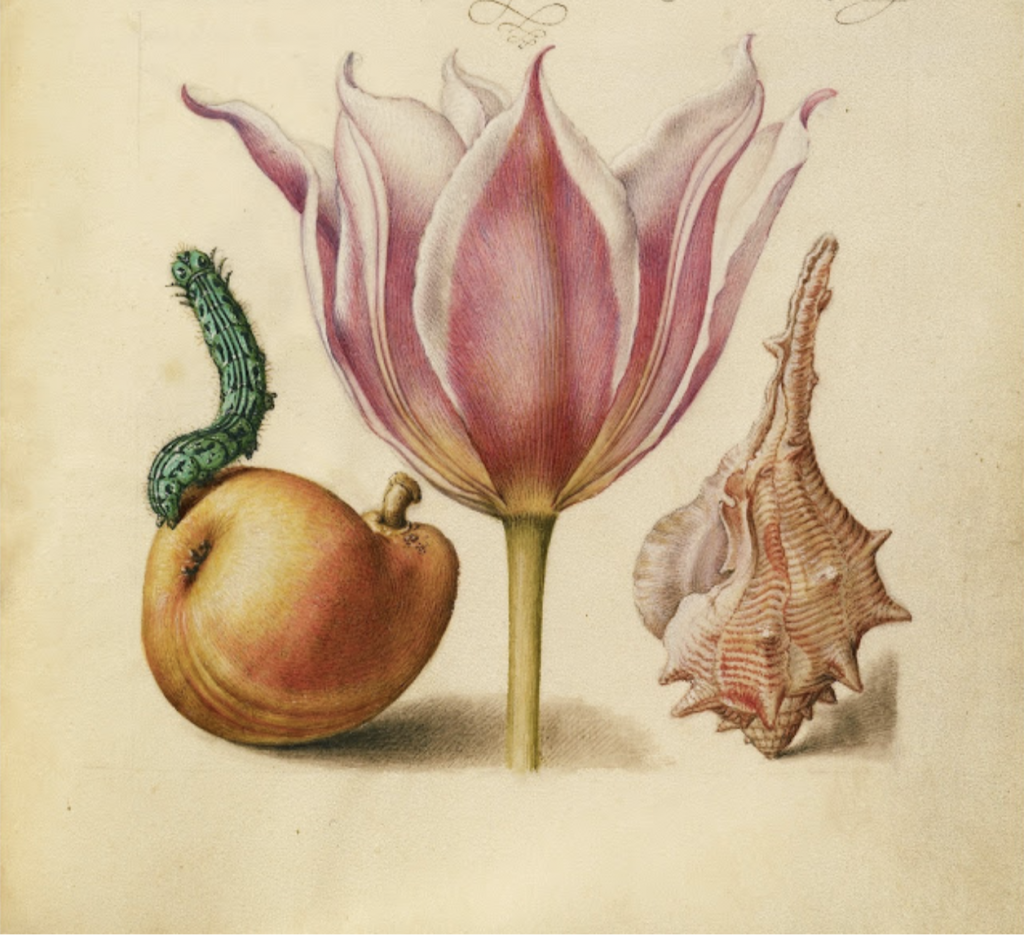
A Culture of Silence:
Satyananda Yoga
By Dr. Josna Pankhania and Jaqueline Hargreaves
The Australian Royal Commission into Institutional Responses to Child Sexual Abuse recently investigated the period in the 1970s and 1980s when shocking levels of abuse were deeply entrenched in the Satyananda Yoga ashram at Mangrove Mountain (Australia). Case Study 21 of the Royal Commission provided a critical cultural analysis of the practices and values held by Satyananda Yoga that served to foster, as well as mask, the abuse. The Commission concluded that Swami Satyananda Saraswati (b. 1923, d. 2009), the founding guru, had overarching authority at the Mangrove Mountain ashram (and its centres) in his role as head of Satyananda Yoga worldwide.